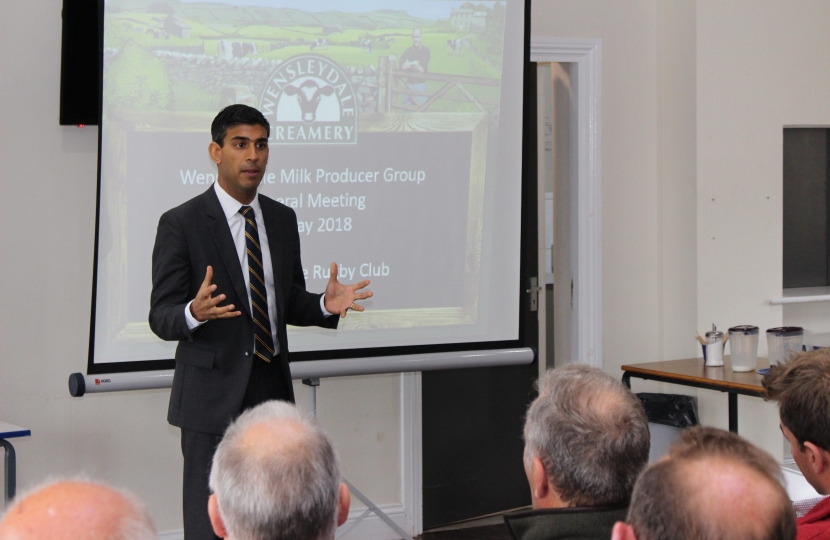
AS negotiations for the UK’s withdrawal from the European Union enter their critical phase, I remain confident that British farming will do well post-Brexit.
I recently had the privilege of addressing the group of dairy farmers who supply the milk to the Wensleydale Creamery at Hawes. We had a good discussion and it added to my understanding of the concerns farmers have about exactly what a future British Agricultural Policy will look like. In a few weeks, I have a similar meeting with Dales hill farmers.
The good news is that in the first instance, the Government has pledged to maintain the same level of financial support to the sector for the remainder of this Parliament.
How the new farm support system will operate is being worked on and the subject of an extensive consultation. But I am sure there are grounds for optimism that we can formulate a new agricultural support system which helps farmers to sustain and develop their businesses while looking after the countryside.
Defra Secretary of State Michael Gove clearly set out the direction of travel in his speech to the NFU conference earlier this year: a move away from acreage-based payments to public money for public goods with environmental protection and enhancement at its heart.
This has been well reported but there was another element of Mr Gove’s speech which I think is just as important and that is that any definition of public goods must include investment in productivity, in turn backed up by research and development, the use of technology and powerful promotion of British produce, both here and overseas.
On a recent visit to the Leeming Bar factory of APB Wessex – Britain’s leading red meat processor – I was very encouraged by the attitude of APB’s senior team. They see a really bright future for Britain’s beef and sheep farmers. If we get the new agricultural policy right it will allow them to play a major role in an internationally competitive and productive agri-food industry which underpins a vibrant rural economy.
On my visit they pointed out that while Britain has many highly efficient and productive farmers, the averages hide a wide range of performance and there are areas where they feel we can still improve.
So, there is tremendous potential in improving the performance of our producers and using support payments tied to best practice, to incentivise the production of high quality food that the market wants supplied in an efficient way.
We also talked about the vital importance of marketing British produce. At present we are partly constrained by EU State Aid and food labelling rules but post-Brexit we will have a golden opportunity to push Brand Britain – not as a short-term marketing campaign but strategically and long term.
That would be a brand which would emphasise the premium quality of British produce, its high welfare standards and also its traceability. I share ABP’s optimism. British agriculture has the potential to produce more food, more efficiently, more profitably and in an environmentally-sustainable way. There is a growing appetite for premium British produce for consumption here in the UK – which would reduce our huge food import bill - and in growing export markets.
Post Brexit, we will be in charge of our trade policy, and we can already see the fruits of the British government opening up exciting, large and growing markets for our farmers like Saudi Arabia for lamb and China for beef.
Also when it comes to trade, it is important there is a level playing field so our farmers can compete fairly with any imports, and should not be undercut by poorer welfare standards, for example.
None of this will be easy – and I do not underestimate the importance of an EU trade deal for our farmers – but I do think we should look on the formulation of a bespoke British Agricultural Policy as a once-in-a-lifetime chance to release the potential of UK farming.
